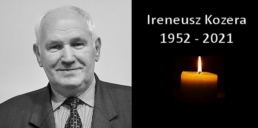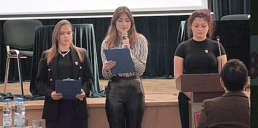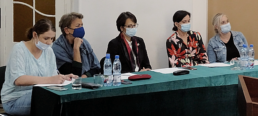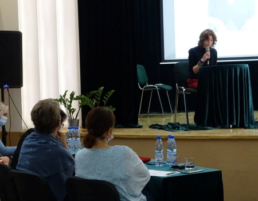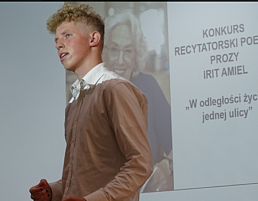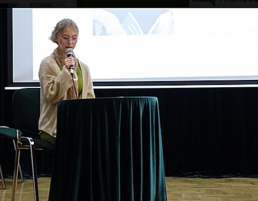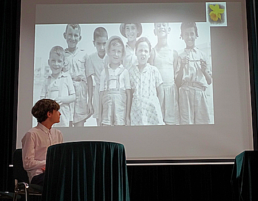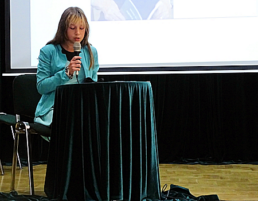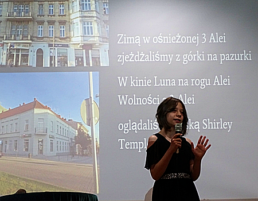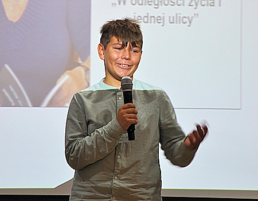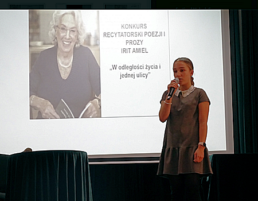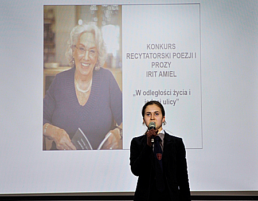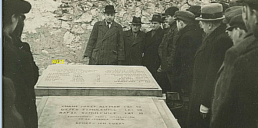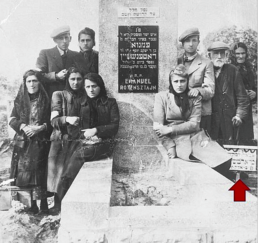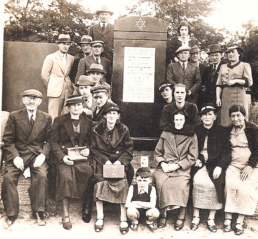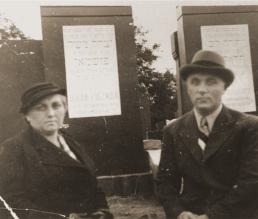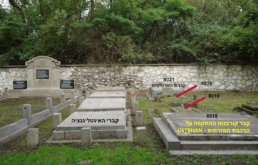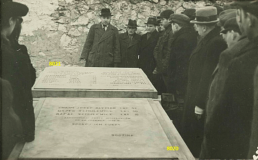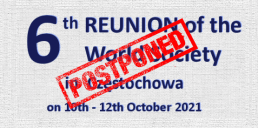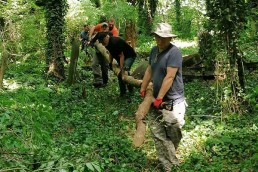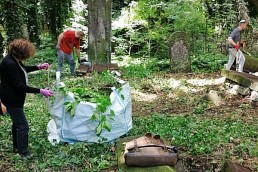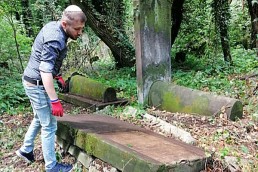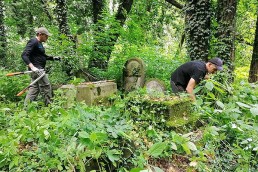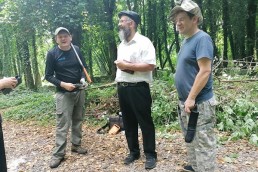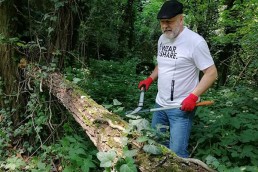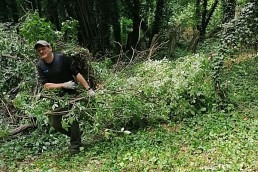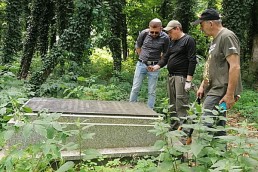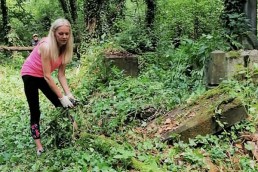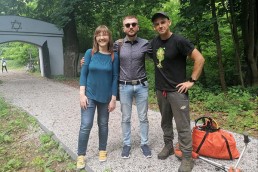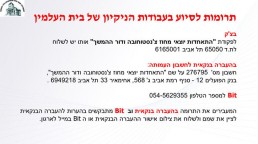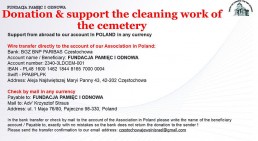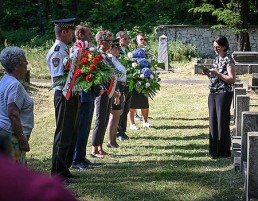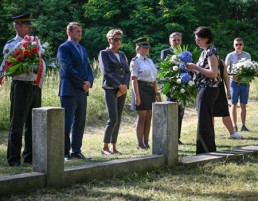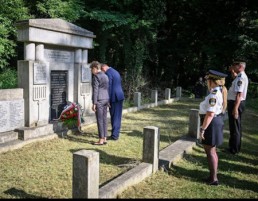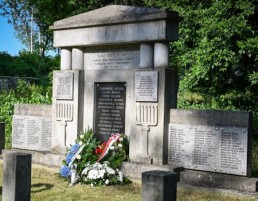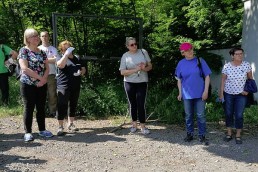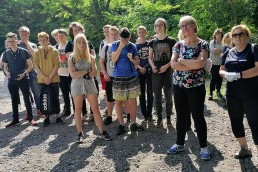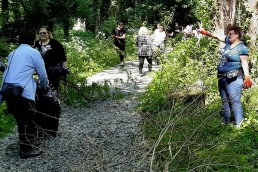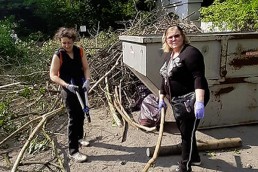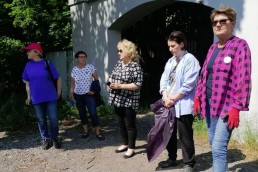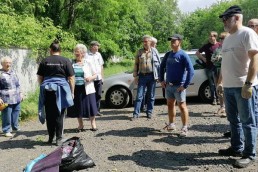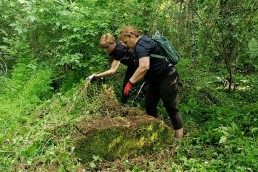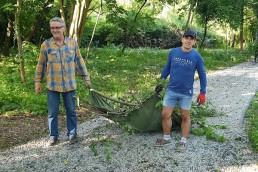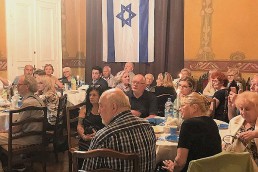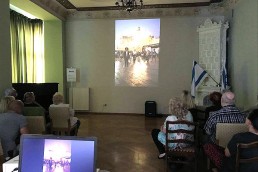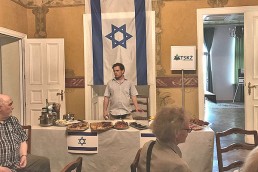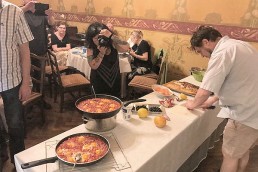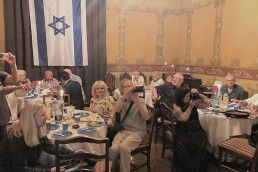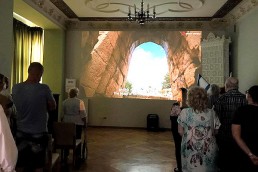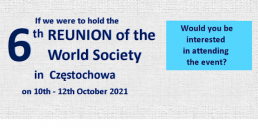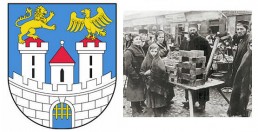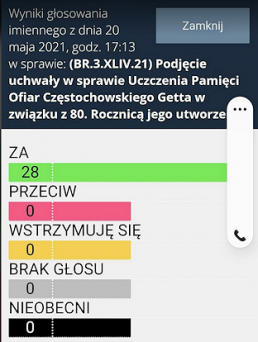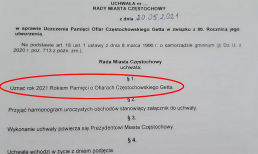Vale Ireneusz Kozera (1952-2021)
Latest News
Sources: Filharmonia Częstochowska im. Bronisława Hubermana, Prof. Jerzy Mizgalski, Alon Goldman
Photos: G. Skowronek (Gazeta Wyborcza), Filharmonia Częstochowska
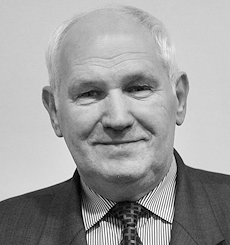 It is with great sorrow that we have learned of the sudden passing of Ireneusz Kozera b.p., a longtime great friend of our World Society and of the Jewish community in Częstochowa. For many years, he served as the Director of the Bronisław Huberman Częstochowa Philharmonic. Prior to that, he served as Head of the Culture Department of the Częstochowa City Council.
It is with great sorrow that we have learned of the sudden passing of Ireneusz Kozera b.p., a longtime great friend of our World Society and of the Jewish community in Częstochowa. For many years, he served as the Director of the Bronisław Huberman Częstochowa Philharmonic. Prior to that, he served as Head of the Culture Department of the Częstochowa City Council.
He passed away just prior to his planned retirement.
Anyone who attended any of our World Society’s Reunions will have met Ireneusz in either of his capacities. His active contributions helped to ensure that our Reunions were as successful as they were. Ireneusz was also a true friend of the small Jewish community of Częstochowa.
He was our trusted partner in many activities aimed at preserving the city’s Jewish heritage. During his career, he was honoured with numerous awards acknowledging his commitment and activities.
In his honour, the Częstochowa Philharmonic will present the “Ireneusz Kozera Memorial Concert” on Friday 24th September 2021, at 7:00 pm. The program will feature the Baltic Neopolis Virtuosi, with concertmasters Emanuel Salvador and Adam Klocek, playing Schubert’s Quartet Movement in C Minor for String Orchestra and Schubert’s String Quintet in C Major for String Orchestra.
May Irek’s memory be a blessing to all who knew him and, in our Jewish tradition, we wish his family “long life”.
Irit Amiel Poetry and Prose Recitation Competition
Latest News
Sources: Juliusz Słowacki Comprehnsive Senior High School, Alon Goldman
One of the events leading up to the commemoration of the 80th anniversary of the liquidation of the Częstochowa ghetto was a student competition reciting the poetry and prose of Częstochowa Holocaust survivor, Irit Amiel z”l. The event took place in the Zofia Idzikowska Auditorium of the Juliusz Słowacki Comprehensive Senior High School.
The competition organiser was the Częstochowa Municipal Education Department, in conjunction with the Częstochowa Branch of the TSKŻ (Social-Cultural Association of Jews in Poland) and the Juliusz Słowacki Comprehensive Senior High School.
The competition was divided into two categories: Recitation and Derivation From the Word.
To learn more about Irit Amiel z”l, click HERE.
The competition Judging Panel comprised Deputy Chair of the Częstochowa City Council and Consultant to the Council on the Częstochowa Jewish Community Ms. Jolanta Urbanska, Chair of the Częstochowa Branch of the Association for Jewish Culture (TSKŻ) Ms. Izabela Sobańska-Klekowska, Literary Secretary of the Adam Mickiewicz Theatre Ms. Ewa Oleś, who is co-scriptwriter of the film “Map of Childhood” dedicated to Irit Amiel, Ms. Dorota Chamoń, and Ms. Agnieszka Łuczak-Wielgórka, both teachers at the Juliusz Słowacki High School.
Competition winners were:
RECITATION
1st place: Aleksander Kopeć, K.K.Baczyński No. 2 Elementary School, Częstochowa
2nd place: Zuzanna Kowalczyk, A.Mickiewicz No.1 Elementary School, Krzepice
Equal 3rd place: Antonina Grywacz, No.27 Elementary School, Częstochowa
Equal 3rd place: Klaudia Rachwał, No.1 School and Pre-School Complex, Częstochowa
DERIVATION FROM THE WORD
1st place: Łucja Aftowicz, Armia Krajowa No.48 Elementary School, Częstochowa
Awards and certificates will be presented on 6th October 2021, at the rooms of the Częstochowa Branch of the TSKŻ (Social-Cultural Association of Jews in Poland), during an major event summarising the series of events connected with the Year of Remembrance for the Victims of the Częstochowa Ghetto.
Do You Have Old Photographs From the Częstochowa Jewish Cemetery?
Latest News
Source: Alon Goldman
Alon Goldman, Chairman of The Association of Częstochowa Jews in Israel and Vice President of the World Society of Częstochowa Jews and Their Descendants, together with the Polish historian Wiesław Paszkowski of the Częstochowa Municipal Archives, are researching the Częstochowa Jewish Cemetery, which was established in 1799.
Of the 15,000 gravestones (matzevot) which the cemetery contained before the War, only about 4,500 have been mapped so far by Wiesław Paszkowski, Alon Goldman and a team of Reut High School students from Jerusalem. The rest were uprooted and destroyed by the Germans and used for fortifications during the War. After the War, while Polish re-construction was happening, building materials were either prohibitively expensive or were simply non-existent. Both Jewish and Christian cemeteries all over Poland, including this one, were then looted for anything which could be used as building materials.
An invaluable resource for researching this cemetery are old family photos taken before the War or immediately after the War, which include images of gravestones (matzevot) before the destruction and looting of the cemetery.
Each photo is meaningful and, with its help, it is sometimes possible to decipher the burial place of someone, which was previously not known.
In the archives of the United States Holocaust Memorial Museum in Washington, we found the picture (left) of the tombstone of Emanuel Rotensztajn, surrounded by his family. The matzeva was erected on his grave at the beginning of the War.
From this photograph, we learned that, next to it, was the grave of Meir Majerczyk, whose family did not survive and therefore no tombstone was erected (marked in red).
We were asked to help in finding the grave of Jehuda Leib Krakoer, who died in 1936 and was buried in the Częstochowa Jewish Cemetery. Although we were provided with a picture of the family around the tombstone, all our efforts to locate it failed, until we found a picture of the matzeva of Izaak Mosze Fiszman at the United States Holocaust Memorial Museum in Washington. To the right of it, partially obscured, is the matzeva of Jehuda Leib Krakoer.
In the mapping of the cemetery, it was not possible to identify who was buried in Graves 8019 and 8020 in the photograph (above, pic left). Only when we carefully examined the photograph (above, pic right), taken by Holocaust Survivor Lew Kusznir, of the grave of the six partisans (8021 in the photograph) taken in 1945/1946, we saw, in front of him, the grave (8021 in the photograph) and thus solved the mystery of who is buried there.
And there are many more such stories!
This is further proof that old photographs of the Częstochowa Jewish Cemetery, in a family album or in photographs donated to the Holocaust archives in the city or country where you live, have the potential to help identify the graves of our family members so that they will not remain anonymous forever.
Please make the effort to look in your old albums or check out the collection of photographs in your local archives.
Every image is important!
Photographs can be emailed to Alon Goldman: czestochowajewsinisrael@gmail.com
6th World Society Reunion - Postponed
Latest News
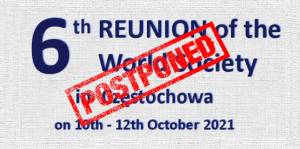 It is with great regret that it has been decided to postpone the World Society’s 6th Reunion which we hoped to hold in Częstochowa in October 2021.
It is with great regret that it has been decided to postpone the World Society’s 6th Reunion which we hoped to hold in Częstochowa in October 2021.
Unfortunately, in many parts of the world, the COVID pandemic continues to either grow or, with the Delta variant, re-emerge in areas which previously seemed to have had it under control.
This, of course, means that there are great uncertainties regarding air travel, hotel accommodation, public gatherings and quarantine regulations both in Poland and in the home countries of participants upon their return
Should you wish to attend, independently, the grand opening concert of the Huberman Festival at the Częstochowa Philharmonic, featuring violin soloist Maxim Vengerov, on 12th October 2021, please click HERE.
As Jews, we often say “next year in Jerusalem”. Let us also say, with hope, “next year in Częstochowa”.
This Year's Częstochowa Jewish Cemetery Clean-Up Continues!
Latest News
Words: Alon Goldman Photos: Asia Garbowicz Sidorowicz
Our annual clean-up of the Częstochowa Jewish Cemetery continued with more of our amazing volunteers.
Among these volunteers were Paweł Kulig, who regularly tends to the Łódż Jewish Cemetery, Dariusz Popiela, Polish champion and Olympic kayaker and founder of the “People, Not Numbers” project and Krzysztof Straus, great friend of the the World Society.
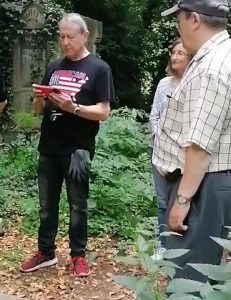 During the clean-up, a memorial service was held for two Częstochowa victims of the Kielce pogrom which took place on 4th July 1946. It was committed by Polish soldiers, police officers and civilians, during which forty-two Jews were killed and more than forty were wounded. Among those killed were Częstochowa Jews Dawid Gruszka z”l and Szmul Rembak z”l, who are buried, side by side, in the Częstochowa Jewish Cemetery.
During the clean-up, a memorial service was held for two Częstochowa victims of the Kielce pogrom which took place on 4th July 1946. It was committed by Polish soldiers, police officers and civilians, during which forty-two Jews were killed and more than forty were wounded. Among those killed were Częstochowa Jews Dawid Gruszka z”l and Szmul Rembak z”l, who are buried, side by side, in the Częstochowa Jewish Cemetery.
For more information about the grave-site, click HERE.
The service was conducted by Jeffrey Cymbler, founder of the Będzin-Sosnowiec-Zagłembie Area Research Society. Via the internet, Arye Gruszka, from Israel, spoke of his uncle Dawid Kruszka z”l and recited Kaddish. From the USA, Yaakov Waszilewicz, a relative of Szmul Rembak z”l, recited El Male Rachamim.
This was yet another cemetery clean-up day organised by World Society Vice-President Alon Goldman, at whose invitation Paweł Kulig, Dariusz Popiela, Krzysztof Straus and Jeffrey Cymbler joined in the efforts of our volunteers
Thank you to the volunteers who came and performed a great deal of work on the day.
However, due to the Cemetery’s poor condition, there is still much to do.
Together, with your support, we can do much more!
!יחד עם התמיכה שלכם נוכל לעשות הרבה יותר
The Association of Częstochowa Jews in Israel supports these works by financing the purchase of tools and gloves,
as well as protection against ticks and mosquitoes.
We also hire skilled aborists and mulching machines as needed.
Together, with your support and contribution, we can do more! A donation to support our activities can be made as detailed below:
Częstochowa Commemorates 78th Anniversary of "Small Ghetto" Liquidation
Latest News
Sources: TSKŻ Częstochowa Branch and Alon Goldman
A ceremony took place, at the Częstochowa Jewish Cemetery, marking the 78th anniversary of the liquidation of the Częstochowa “Small Ghetto”, with flowers being laid at monuments in the cemeteries central area.
At the ceremony, when requesting one minute’s silence, TSKŻ Częstochowa branch Chairwoman, Izabela Sobańska -Klekowska said, “On behalf of the 5,200 Polish Jews, who were saved from the Częstochowa ghetto, including 1,500 Częstochowa residents, from generation to generation, we carry the memory of the victims of the Częstochowa ghetto, with the message that this tragedy should never happen to any nation. We always openly oppose xenophobia, antisemitism and discrimination. On this 78th anniversary, we remember all the Jewish citizens of Poland who were murdered in the Częstochowa ghetto.”
Other present at the ceremony included Deputy Mayor of Częstochowa, Bartłomiej Sabat, Deputy Chair of the Częstochowa City Council, Jolanta Urbańska, Principal of the Słowacki High School Magdalena Kaj and Director of the Christian Association Adulam, Elżbieta Ferenc.
This Year's Częstochowa Jewish Cemetery Clean-Up Begins!
Latest News
Words: Alon Goldman Photos: Asia Garbowicz Sidorowicz, Krzysztof Straus
On an almost annual basis, Alon Goldman, Vice-President of the World Society of Częstochowa Jews & Their Descendants and Chairman of the Association of Częstochowa Jews is Israel, has organised and led a clean-up of the Częstochowa Jewish Cemetery. The 2020 Cemetery clean-up was postponed due to COVID-19. However, despite the ongoing impact of the pandemic, the 2021 clean-up of the Częstochowa Jewish Cemetery has begun!
According to Alon Goldman:
Many e-mails crossed the ocean as Pastor Steven D. Reece, from The Matzevah Foundation, and I debated whether we could, in the shadow of the pandemic, organise a week of clean-up work in the Częstochowa Jewish Cemetery, in early June this year, as we had done in 2018 and 2019.
The limitation on international air travel and Poland’s COVID numbers led us to the sad decision that, this year, as last year, we would not be able to implement it and that there would be no clean-up – OR SO WE THOUGHT!
However, the COVID situation in Poland improved and, at the initiative of Częstochowa City Council Deputy Chair Jolanta Urbanska, Częstochowa TSKŻ Chair Izabela Sobańska-Klekowska and Director of the Christian Adullam Foundation Elżbieta Ferenc, cleaning work began on Wednesday 9th June!
The work day began in the morning, when a team from the Częstochowa Fire Brigade arrived at the Cemetery in order to cut down about fifty trees, some of which had fallen, while others were leaning in such a manner as could endanger Cemetery visitors. The felling was done, following my request for assistance from the municipality, after the effects of the snowstorms in February this year. Częstochowa City Council Chair, Łukasz Kot, assisted in arranging this, following a preliminary visit by Izabela Sobańska-Klekowska and representatives of the Czestochowa City Council’s Environment Department, who carried out pre-marking procedures.
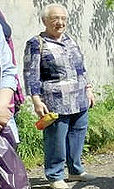 In the afternoon, the parking lot began to fill up and friendly voices were again heard at the entrance to the Częstochowa Jewish Cemetery. Dozens of volunteers began gathering and were joined by students from Słowacki, General Anders, Traugutt and School of Economics High Schools.
In the afternoon, the parking lot began to fill up and friendly voices were again heard at the entrance to the Częstochowa Jewish Cemetery. Dozens of volunteers began gathering and were joined by students from Słowacki, General Anders, Traugutt and School of Economics High Schools.
One of the volunteers was 83-year-old Dr. Anna Goldman (pic left), whose grandparents are buried in this cemetery. Initially, her entire family was in the ghetto and, when the liquidation of the ghetto began, they managed to escape with the help of friends, a Polish family. Using fake Aryan documents, they moved to the “Aryan side” and, until the end of the Warm they hid in various places.
Thank you to the volunteers who came and performed a great deal of work on the day. However, due to the Cemetery’s poor condition, there is still much to do.
We hope to see you again on the next working day, Sunday, 4th July 2021 between 11:00 – 14:00 and 15:00 – 17:00, when you will be joined by:

Paweł Kulig (pic left) – Chairman of the “Guardians of Remembrance” Association, which works to protect the cultural and historical heritage of the Jews of Lodz (“Straznicy Pamieci”).
Dariusz Popiela (pic right)- Chairman of the “Centrum Foundation” of the Popiela family. Dariusz is a Polish Olympic athlete, European Champion, holder of medals at world championships and a Polish representative at kayaking championships. He heads his Foundation’s “People, Not Numbers” Project. The work of Dariusz and his volunteers include the cleaning of Jewish cemeteries near where they live. https://centrumfundacja.pl/en
Together, with your support, we can do much more!
!יחד עם התמיכה שלכם נוכל לעשות הרבה יותר
The Association of Częstochowa Jews in Israel supports these works by financing the purchase of tools and gloves,
as well as protection against ticks and mosquitoes.
We also hire skilled aborists and mulching machines as needed.
Together, with your support and contribution, we can do more! A donation to support our activities can be made as detailed below:
Częstochowa TSKŻ Celebrates Israel Independence Day
Latest News
Source: Towarzystwo Społeczno-Kulturalne Żydów, Częstochowa
On 7th June 2021, the Częstochowa branch of the TSKŻ (the Social-Cultural Association of Jews in Poland) celebrated Israel’s Independence Day at its headquarters at ul. Katedralna 8, in the building which is also home to the Jewish Museum of Częstochowa.
The event began with a lecture by branch Chairwoman Izabela Sobańska -Klekowska on “The Genesis of the Establishment of the State of Israel”. This was followed by a presentation of images of contemporary Israel, showing Tel Aviv as a modern city and historic Jerusalem with its Chassidic district.
Another attraction was the presentation of Israeli cuisine by the Warsaw chef Jakub Chojecki.
Here, event participants had the opportunity to see how many dishes are made – hummus, lentil falafels, spicy carrot salad, beetroot salad with yoghurt and tahina, marinated radishes, shakshouka and tropical fruit salad with pomegranate. Jakub’s baked naan bread also proved to be very popular was very popular. Everyone was able to try all the dishes and it must be admitted that everyone was indeed happy and full.
The celebration ended with the singing of Hatikva, Israel’s national anthem.
The event was made possible thanks to a grant from the Polish Ministry of the Interior and Administration.
6th World Society Reunion - Express Your Interest!
Latest News
It has always been hoped that our 6th World Society Reunion can be held in Częstochowa on 10th-12th October 2021. Of course, the COVID-19 pandemic around the world has made everything uncertain. So we are STILL unsure as to whether the event can take place as hoped or whether we will need to wait until, possibly, next year.
HOWEVER, in order to be able to estimate numbers should we be able to hold our Reunion in October 2021, we are asking people to express their interest in attending.
This is NOT a registration or booking – at this stage, it is ONLY an expression of interest.
Click HERE to express your interest.
Częstochowa City Council Commemorates Częstochowa Ghetto Victims
Latest News
Sources: Jolanta Urbanska, Deputy Chair, Częstochowa City Council,
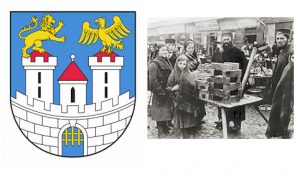 The Częstochowa City Council, today, unanimously passed a resolution declaring, in Częstochowa, 2021 as the Year of Remembrance of the Victims of the Częstochowa Ghetto. Adoption of the resolution is in connection with the 80th anniversary of the ghetto’s establishment.
The Częstochowa City Council, today, unanimously passed a resolution declaring, in Częstochowa, 2021 as the Year of Remembrance of the Victims of the Częstochowa Ghetto. Adoption of the resolution is in connection with the 80th anniversary of the ghetto’s establishment.
On 9th April 1941, the German mayor of Częstochowa, Richard Wendler, proclaimed the establishment of a ghetto in the north-eastern part of the city. The Jews were given until 23rd April to move into the ghetto, an area from which 3,000 non-Jewish residents were evicted.
Following the mass deportations in September and October 1942, on 1st November 1942, a much smaller area near the Warta River was established. It became known as the “Small Ghetto”. It was surrounded with barbed wire and had only one gate. With the arrival of Jews from other labour camps, the “small Ghetto” had a population of more than 5,000.
In mid-1943, following further mass murders, the “Small Ghetto” was liquidated. The 4,000 remaining Jews were then sent to slave labour camps – 3,350 to HASAG-Pelcery and the remainder to HASAG-Warta.
Reference: The Yad Vashem Encyclopedia of the Ghettoes During the Holocaust, Vol.1, 2009.

